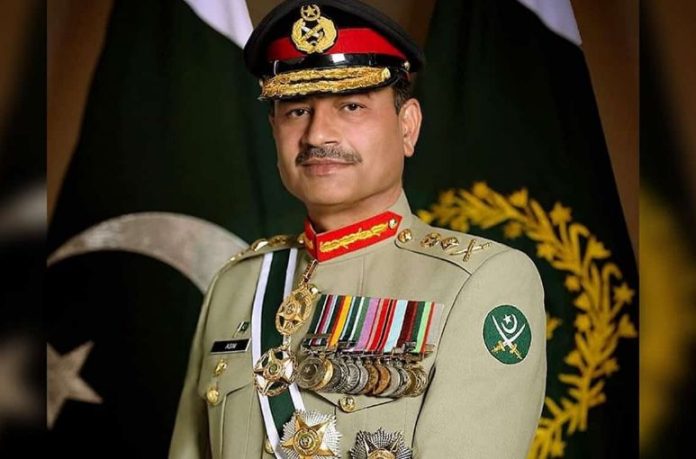General Asim Munir, Pakistan’s Chief of Army Staff (COAS), has announced plans to tax currency exchanges after the Pakistani rupee fell sharply against the US dollar.
This was revealed in a meeting with Lahore’s business sector on Sunday at the Corps Commander’s Headquarters. Businessmen were reassured by Gen. Munir’s promise to make dollar exchange and interbank rates public.
Lahore Chamber of Commerce and Industry (LCCI) president Kashif Anwar reportedly met with the army chief to discuss the country’s economic woes, according to a statement issued by the organization. Mohsin Naqvi, the interim chief minister of Punjab, was also present.
The Special Investment Facilitation Council (SIFC) was singled out by General Munir, who emphasized the importance of the organization and its potential to attract massive investments of up to $100 billion from nations like Saudi Arabia, the United Arab Emirates, Kuwait, and others.
He announced the establishment of economic and sector-specific task teams to improve policymaking.
To ensure that the task force’s agenda is inclusive of a wide range of opinions, Kashif Anwar, in line with the broader business sector, urged full participation from all chambers.
“The head of the LCCI advocated lowering income and sales tax rates on electricity bills in an effort to address pressing challenges facing the people. High power taxes, which affect people’s ability to go about their everyday lives and run their businesses, are a major issue”, he said.
He advised taking a realistic view of fuel adjustment costs and argued that they should be collected in the winter, when electricity use is lower, to reduce customer outlays.
Kashif Anwar, acknowledging the importance of currency rates to Pakistan’s economy, called for tighter regulation of the dollar’s value in the country’s interbank and open markets.
The president of the LCCI further noted that many people prefer to send money through Hundi channels rather than the State Bank because of the interest rate gap between the two. He emphasized that remittances would naturally flow via the SBP if these rates were harmonized.
Anwar stressed the need for a better and more consistent two-way conversation between the business community and the proper authorities. He was worried about the widespread indifference to recommendations from the private sector.
Anwar further suggested that all political parties sign an economic charter as a prerequisite for participating in any future elections, calling for a concerted effort on their behalf.
He elaborated on the army chief’s previous comments about the existence of a grey economy, which he estimated to be two to three times the size of the official economy, and presented a novel solution. As a strategic response to this endemic problem, he proposed providing incentives for members of the grey economy to join the legitimate, white economy.
The head of the LCCI has stated that the grey economy will not be able to contribute to the legal white economy as long as it remains unincorporated.
The business sector and military leadership came together at this event because they are both committed to solving the nation’s most serious economic problems and driving economic growth via cooperation.
This open and honest discussion bodes well for Pakistan’s future economic success as the country continues to confront its economic challenges.


